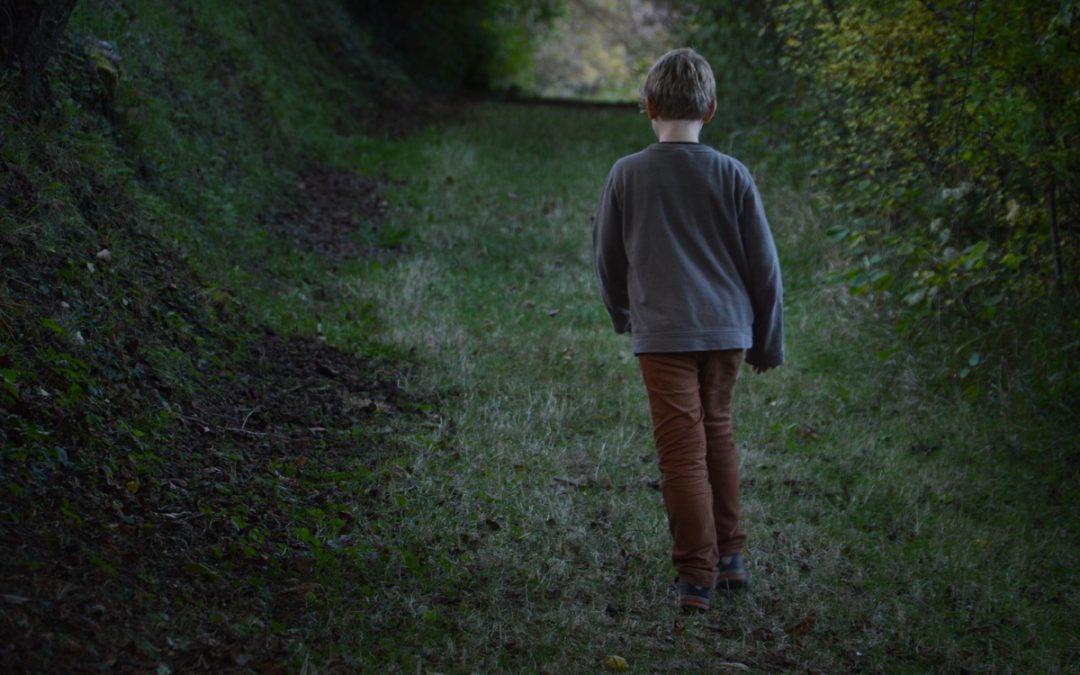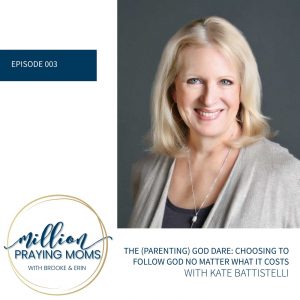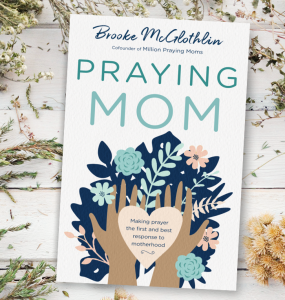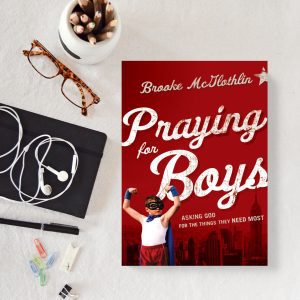I’m so glad to have you join me for this important podcast series on anxiety in children. last week we talked to Nashville counselor, Sissy Goff. Sissy is a wealth of information for the girl moms, so if you missed it, please go back and listen to that one. Today though, we’re focusing on boys. Anxiety can be just as much a problem for boys as it is for girls, but it isn’t talked about as much, and it doesn’t always look the same. To help us learn what it looks like, so that we can get our boys the help them need, we have Dr. Gregory Jantz.
Dr. Jantz is the founder of The Center • A Place of HOPE in Edmonds, Washington, voted a Top Ten facility for Depression Treatment in the United States. Dr. Jantz pioneered Whole Person Care in the 1980’s and is a world-renowned expert on depression, anxiety, eating disorders, technology addiction and abuse, and is the author of many books on the subjects…
In this episode, Dr. Jantz walks us through how anxiety presents differently in boys…
To read today’s episode scroll down to the end of this post.
Today’s show is brought to you by our newest prayer guide, Praying God’s Word for Your Child’s Anxiety
Links mentioned in this episode:
This post contains affiliate links. When you purchase through this link, you help support Million Praying Moms at no extra cost to you. Thank you!
Grace to Grow: A 5-Day Study of Patience and Prayer
Praying God’s Word for Your Child’s Anxiety
Praying for Boys: Asking God for the Things They Need Most
Subscribe & Review in iTunes
Have you subscribed to the Million Praying Moms Podcast? If not, why don’t we fix that right away! We don’t want you to miss even one! Click here to get that taken care of!
And if you’re feeling extra special generous, we would be so grateful if you took the time to leave a brief review. These help other people find the Million Praying Moms Podcast (and they encourage us to keep going)! Just click here to review, select “Ratings and Reviews” and “Write a Review” and then let us know what you love about the podcast! Thank you!
Read Today’s Podcast Episode
Brooke
Hey guys, I’m so glad to have you join me for this important podcast series on anxiety in children. Last week we talked to Nashville counselor, Sissy Goff, who is a wealth of information for the girl moms. So if you’re tuning in today and you missed last week, go back and listen to that one. Today though, we’re focusing on boys.
Anxiety can be just as much a problem for boys as it is for girls, but it isn’t talked about as much, and it doesn’t always look the same. To help us learn what it looks like so that we can get our boys the help they need, I’ve invited Dr. Gregory Jantz to join us for today’s show. Dr. Jantz is the founder of the Center, A Place of Hope in Edmonds, Washington, which was voted a top 10 facility for depression treatment in the United States. Dr. Jantz pioneered whole person care in the 1980s and is a world renowned expert on depression, anxiety, eating disorders, technology addiction, and abuse. He is the author of many books on the subject. In this episode, Dr. Jantz walks us through how anxiety presents differently in boys.
Dr. Jantz, it is so good to have you on the show today. Tell everybody listening a little bit about you. This is your first time on the Million Praying Moms podcast. So let them know a little bit about you, a little bit about what you do, help us get to know you.
Dr. Jantz
Oh, absolutely. And first of all, thanks for having me. And I love moms. OK, this is our 39th year. I’m from The Center, a Place of Hope. I’m looking out my weather window. It’s beautiful today. I look over the mountains and a big, huge body of water. We’re a facility where people come from all over the country. We’re known for our work with depression, anxiety, addictions, OCD, post-traumatic stress disorder. From a whole person point of view, we designed a model for mental health treatment back in the early 80s. We called it the whole person approach. So our team is from everything from psychiatric to medical to natural health care to diet and nutrition with dieticians and counselors and substance use counselors. Fitness as well. So we integrate it all in what we do with each and every individual. And this really is my 39th year, and just completed my 45th book.
Brooke
Wow, wow. Okay, so I have my seventh book that’s coming out in a few weeks actually, but I kind of thought that was a big deal, but my goodness, did you say 45? Is that what you said or 40?
Dr. Jantz
They just add up over time and before you know it. Yeah.
Brooke
That’s amazing. Congratulations. That is quite an accomplishment. Let’s not just let that go without saying well done and congratulations from one author to another. I know the amount of work that went into that. So that’s an amazing accomplishment. I’m super excited for that and other reasons. Super excited to have you on the show today and to get to know you a little bit better and share you with our audience.
Dr. Jantz
Thank you.
Brooke
The reason that I wanted to talk to you today is because in the last year or so, the news has been full of really scary stats regarding girls in particular and the way that they are experiencing anxiety and depression and suicidal ideation at alarming rates. Now in this time and period, as opposed to maybe the way it was when I was in high school. And so, last week on the show we had an expert in the field of girls. Sissy Golf came on the show to address the apparent epidemic of anxious girls, but you know what, Dr. Jantz, I’m a mom of two boys two teenage boys, and I know that we have a lot of boy moms who are listening to our show today who would like to know as they read these things that are happening with girls. They would like to know how the times that we’re living in are affecting our boys this way. And so on behalf of all of those boy moms that are listening right now, we are truly looking forward to your insights. I’m just gonna jump right in and start asking questions. The first question that I have for you is, what are some of the root causes of anxiety that you see in boys?
Dr. Jantz
Well, the root causes of anxiety, in fact, in boys, is actually increasing. Let’s just say that anxiety is the number one diagnosis in our country right now. That’s a non-medical diagnosis. It’s the number one diagnosis followed by depression. And we are seeing this in our youth, and we look at the ages 10 to 17 is a particularly age range of great concern. Depression and anxiety rates in the last three and a half years of I guess what we’ll call a pandemic season has had a great effect. Our boys were already, generally speaking, suffering academically. And we have what happened to our schools in many different states and boys were put in a virtual online learning. And what we do know about that, by the way, is it didn’t work. Year 2021 across our country, we had the lowest, well, the highest academic failure on record. So we had, we’ve never seen anything like what we’ve seen here with boys and academic failure. The same affected the girls during COVID, but the boys suffered even worse. And so we look at some of these root causes and issues, and we need to just say it, boys, a boy brain, a girl brain, God designed them differently, and we learn differently. And so when we put boys in a virtual learning, boys are more attracted to well, let’s say gaming. They like intensity and visual. And many times when a teacher thought this teacher was teaching remotely, but what we know is, and I’ve seen this several times, is the kid’s not paying attention to the screen. They have their cell phone in front of them and they’re playing a game with other students in the class and the virtual learning was really truly a failure. So the pandemic threw our kids into social media like never before. It was a herd and the social media numbers went way up. And with that created some other problems.
Brooke
Yeah, absolutely. I think that’s a really important point. And I know it was a battle. So my oldest son who just graduated, to give us some perspective, who just graduated from high school a couple of weeks ago, was in the ninth grade when the pandemic hit. So his entire, pretty much his entire high school career was impacted by what our country and what the world went through a few years ago. And it was a battle. Now, both of my boys are very active. Given the choice, they would rather be outside than, you know, sitting in front of a computer or whatever. But it’s still, even though their kind of natural proclivity was to be outside, we still had that battle in our home of, okay, how much do we just let them be? Because that’s the only way they can be with their friends right now. How much do we just let them that we maybe wouldn’t have let them beforehand? And so what I’m hearing you say is that this had a much deeper impact on them than, well, I think we all kind of wondered if it would. And now we’re seeing that it actually did.
Dr. Jantz
Yes, the isolation and when I mentioned the involvement in social media, social media has not been good for our kids. I’m just going to say it. The first thing you do is you compare yourself to a non-reality and the early sexualization of the average age to exposure to pornography on the internet now is about age nine and it’s getting worse.
Brooke
And that just hurts. Like that’s just a sucker punch for moms I know.
Dr. Jantz
Yeah, yeah, it is. So what we’re finding is, and the gaming and desiring more and more intensity, we have a developing brain that brain is developing, we overstimulate it with all the social media with gaming, that we call it we digitize the brain, it’s too much digital input, and too many screens for too long. Well, well, if you’ve ever been with a boy who’s been online for eight or 10 hours gaming, what are they like? Well, they’re irritable. They can’t concentrate. They’re moody. They’re probably a tad bit depressed. And their sleep cycles are disrupted. So that’s what we’re seeing. We know that during the pandemic, gaming went up more than 50% and has continued at a very high number.
Dr. Jantz
So we got gaming and we have social media. And this is really something that obviously has a very powerful effect. We know the dopamine levels in the brain, how the brain works, we crave more and more. We’ve again overstimulated that brain. And then what happens is we crave more and more. So we call it a craving brain. The craving brain wants more and more stimuli. That’s where pornography could come in.That’s where more intense gaming, but we want more and more and more.
Brooke
Yeah, yeah, I think that’s just great insight. And of course, that’s what was gonna happen. I think back to, both of my boys are older now, and but they were quite literally one of the only kids, their age that did not have access to social media at one point. In fact, I remember my son when he was 10 years old. He went to a party with other 10 year olds and he came home from this sleepover and he said, Mom, I need a phone. And I said, no, you don’t. Why do you need a phone? And he said, Mom, I was the only one at the party that did not have a phone. And my first reaction was to say, oh, that’s not true. Because I know I pulled that on my parents, right? Mom, dad, I’m the only one. But the reality was he actually was the only one at the party that did not have a phone. And so our kids, we held off for probably longer than they were really happy with. And in hindsight, I wish we’d held off even longer, but it does have a huge impact on them for sure. So what are some signs as we are trying to figure out all the impact of this and how it has impacted our boys over the years, what are some of the common signs of anxiety that might present differently in boys than in girls. What are we looking for?
Dr. Jantz
We’re going to look for a pattern. Here’s some of the things we’re going to look for. And remember, when we use the term anxiety, which is a little different than the term worry, anxiety always has a physical or a physiological component. I feel a pit in my stomach. My heart rate goes up. I get sweaty palms. I might have a headache. So there’s always a physical side to anxiety. Now, typically, and I’m going to make a general statement that many boys will do more withdrawal and more isolation when they’re not doing well. And they’ll probably put those earbuds in and they’re more disconnected. So we look for more disconnection than normal. We notice oftentimes some academic failure and more struggle. We see an increase in apathy, where I just don’t care. You may notice that your son may wanna just sleep all the time and probably some real issues with sleep cycles. They may be up all night or much of the night. That’s not uncommon. Trying to get to a screen or having a screen. So sleep patterns usually go along with, sleep pattern change with anxiety and depression. So we’re gonna look for that. Obviously there’s change in appetite.
Some boys will just go to their room and they’re eating all the time. Others will not eat at all, so the one or two extremes. Again, we’re just looking at all these different areas and a pattern. Has this been going on 30 days, 60 days, 90 days? Is it getting worse? Have they disconnected entirely from the normal peer group they were a part of? Are they not desiring to be a part of anything social. We always need to look at is there engagement with pornography or what are they doing digitally as well? Are they being threatened? Are they being bullied? What’s going on? And that can happen to both boys and girls. So again, it’s a pattern.
And then we also look for what they’re saying or not saying. A boy may just say, if you say, how are you doing? I’m fine. And it’s about as far as you get. I’m fine. And everything says he’s not doing well, but he’s not verbally sharing it. That’s pretty common. You may already notice that the boy may struggle for words already. But when they’re not doing well, they’ve withdrawn more into themselves, and they become less verbal.
Brooke
Okay, that’s really interesting because you know, it’s and I think there’s probably room for individual differences here where like I have one child that talks all the time. And then I have another child just in their natural happy state that I have to pull things out of like I’m pulling teeth. So there’s personality differences as well. But but I think what you’re saying is if this is not if they’re changing from the norm, you’re looking for patterns that are shifting. So maybe you’re your child that was very talkative is suddenly not, or your child that was really hard to get things out of anyways has become just a vault, and you can’t get anything at all out of them ever. So is that what I’m hearing you say?
Get your copy of Praying God’s Word for Your Child’s Anxiety
Dr. Jantz
Absolutely. You’re going to notice a change in their normal personality. And again, I’m making some general or broad statements that cover many, but there are very unique personalities. You may have a young, a young man that’s highly verbal, and then that might be a little different. So, but we are looking for changes in how they normally present themselves.
Brooke
Yeah, okay. So you’re talking to a bunch of moms today and the mom-son relationship can be, goodness, it can be a roller coaster. It’s so, it can be so wonderful when they’re little and they ask you to marry them and they bring you flowers and all the sweetness of the mom-son relationship when they’re younger, but when they get older, that can change some and should change some as they get older. And so because you’re talking to a bunch of moms right now who may be struggling with sons that are experiencing anxiety or they feel like they’re wondering, is this is what I’m looking at? You know, my son experiencing a new level of anxiety in his life, what can a mom do in particular to help her son when he’s anxious? Knowing all that you know about the mom-son relationship, what is the best thing? Give me two or three things that would be great for her to do to help her son in that situation.
Dr. Jantz
And we cover it with a lot of patience because we can get really frustrated. Okay, so but one of the things is change their environment. A young man, take them outside. If you have something really important, you want to talk to them about involve movement. Get them out for a walk. Put something in their hands. Is it a ball? Is it a stick? A boy needs something, I call it a mediating object. They need something in their hands, and they need movement. Okay, so you want to talk with them, you know, what we tend to do is we’ll say, sit down, listen to me, I have something really important to tell you. And you start on whatever. And it would kind of borderline on giving a lecture. And then we asked the boy, we go, what did you just hear me say? And they go, huh? Or you might say, are you listening to me? And you’re going, uh-huh. And you’ll go, what did I just say? And they’ll probably, I don’t know, because their brain turned off. Take them outside, take them for a walk, engage them in movement, have that important conversation, and allow there to be space. It’ll change, how you change that context will change the content of what they share.
And so we just gotta look at doing it a little bit differently. So I encourage that, that we’re gonna approach it a little differently. Be careful about whys or hows. Like, how could you possibly feel that way? You know, we’re gonna gather information, not judge the information. If you say, well, why did you do that? Well, that’s not gathering information. Be careful about comparisons. You know, it’s like, well, your brother doesn’t have this problem. We can say things sometimes out of frustration or somewhat innocently that ends up really blocking further communication. So be careful about questions. Make them real questions, and engage them in it, allow them the time. So often we wanna fix it pretty quick and we’ll say, well, why don’t you do this? And we wanna solve it quickly. Lent them, they may be slower to process their emotions, so give them the space, let them process their emotions. You may be way over here with what you wanna do, but they’re not there yet.
That’s where I say you’ve got to cover this with patience and grace. And they need to feel two things. They need to feel heard, that you’re hearing them, which is on a deeper, you’re really hearing and you’re striving for understanding. And they really need to feel accepted. A boy will share more when they feel acceptance. And acceptance doesn’t mean I agree with you. It doesn’t mean I agree with everything you’re saying or what you’ve done.
But they need to have a sense of acceptance. And with that, they need to know that you really do value them. And keep the focus singular. This is not the time to bring in all the other issues. Okay? So be careful.
Brooke
Mm-hmm. Don’t get historical, right? Not hysterical. Don’t do that either, but don’t get historical. Yeah, that’s fantastic. Fantastic. OK, so I wanted to just mention that I really loved that you started with movement. That has been a lifesaver for us in our home in many ways, especially when our boys were very young, even but even now. When our boys were very young, we homeschooled. And my youngest in particular was having trouble learning to skip count. Now this was not an anxiety response. It was just having trouble in one particular area, like five, 10, 15, 20, that kind of thing. And so we bought this little mini exercise trampoline and we put it in our homeschool room. And I would have him bounce on that and we would clap five. 10, 15, 20 for every single bounce. And he learned it like that. Movement for him made all the difference in the way his brain was able to process and retain the information that we were trying to learn together. And even now, this particular young man is 16, he plays a lot of sports because he actually makes better grades when he’s playing a sport because he needs to move. Physical is so important for our kids, so important for our kids, especially our boys, I think. I’m not saying it’s not important for girls, but I really can relate to that for boys. I just think that’s such a great practical tip for moms is get them moving.
Dr. Jantz
Isn’t it true? Yes, yes.
Brooke
I love the idea of taking a bonding walk, you know, or something like that where their body is moving so that their brain can be processing better. That’s so good.
Dr. Jantz
Absolutely. Some of this is age dependent. If they’re younger, roll a ball back and forth, throw a ball back and forth, but in some way put something in their hands and get them moving.
Brooke
Yeah, absolutely. I love that. Now you’ve touched on this and I kind of want to wrap up our time with this. You’ve mentioned a little bit of this as you’ve been talking but I would love for you to tell us specifically how a parent can know when their child’s anxiety is something that needs professional attention. So how can we go from trying to manage it ourselves in our own homes to knowing, okay, this is beyond what the family unit can deal with and we need help.
Dr. Jantz
If we are seeing consistent lack of self-care, which includes the sleep, we’re seeing that where they used to put some importance on grooming and showering, and you’re seeing these things are continuing to diminish, you’re not seeing good self-care, and we’re seeing again, I’m gonna use the word disconnect, the disconnection, and even if a friend reaches out, they’re not interested. So, these are all for me warning signs and I’m going to say, you know what, sometimes it’s really helpful to have a non-family member engage. If there’s not a mentor or a person of influence that is reaching our young sons, then I’m going to say there’s a time for professional intervention. You want to have somebody that really gets how the brain works and is able to build trust and understands, we can grow very frustrated as a parent. And then we also start to blame ourselves. We go, well, it must be something I’m doing. And we feel responsible. Be careful about that. And guess what? It’s okay for somebody else to help. Because it’s okay. It can change a whole direction. So the other thing I say is don’t give up. It may be a really difficult or it seems like a long season of challenge. And you may feel some real discouragement in things you’re seeing. Do not give up. Stay in the game. Things do change with appropriate interventions.
Brooke
I love that. So thank you for speaking to directly to the mom who might be listening today and feeling lots of shame and guilt. Because she feels like she’s somehow directly responsible for the challenges that her son is facing right now. I appreciate that as a mom, just knowing that there’s usually more to the equation. It’s usually not all mom’s fault that this is happening. But we tend to carry that and wear it like like, you know, our favorite pair of shoes because we feel so responsible for what’s happening in their lives. So I appreciate you speaking to the moms that are listening that way. Is there anything that you’d like to share that we haven’t covered today on this subject as we wrap up?
Dr. Jantz
There is hope and hope always comes when we create a plan. So we need, you know, we’re creating a plan, allow somebody else to come alongside and help with that plan. We don’t wanna do the same thing that our boy may be isolating. Be careful as a parent, you don’t do the same thing. So there’s hope, let’s build a plan.
Brooke: Yeah, absolutely. Thank you so much, Dr. Lance, for being with us today. I would love it as we wrap up, if you could just tell everyone where they can learn more about you and maybe how they can grab some of that, you know, plethora of books that you’ve written. I’m sure there’s something that I will link, we’ll link to that in the show notes as well, but tell us how they can get engaged with what you’re doing.
Dr. Jantz
Absolutely. Visit Aplaceofhope.com. And there’s a lot of resources there. There’s a good anxiety test that’s confidential and free. There’s some wonderful downloads and free information that we’ll give you. Our goal is to resource. We know that times this can be very challenging.
Brooke
Awesome. Thank you so much for being here.
Dr. Jantz
You’re welcome.
Brooke
Thanks for hanging out with me today, friends. Don’t forget to get your copy of our new prayer guide, Praying God’s Word for Your Child’s Anxiety. You can find it and more about Dr. Jantz now in the show notes at millionprayingmoms.com. Till next time, friends, the Lord bless you and keep you. May his face shine upon you and be gracious to you. May the Lord look with favor on you and give you peace.













I have really enjoyed your podcasts and agree – lack of joy is a symptom of taking our eyes off Jesus. I have to remind myself of this often. I also heard you mention social media in a few of your podcasts. I believe that social media can really distract any one of us from all of the above. A good first step should be – get off of social media – ESPECIALLY if someone is not finding joy. I believe that SM is the cause of many joyless hearts – of course, the root comes back to taking our eyes off Jesus, then on to someone’s created illusion of life or spit second image of perfection without the reality of the seconds, minutes, and hours before and after. Our poor children have no idea how sucked into these deceptions they are, but how can we help them understand if we are sucked in too? You may have already addressed this – I haven’t listened to them all, but plan to. 🙂 Thanks again.
This is a great addition to the conversation! Thank you so much. I really think you’re right, and I feel it in my own life as I interact with social media. So true!